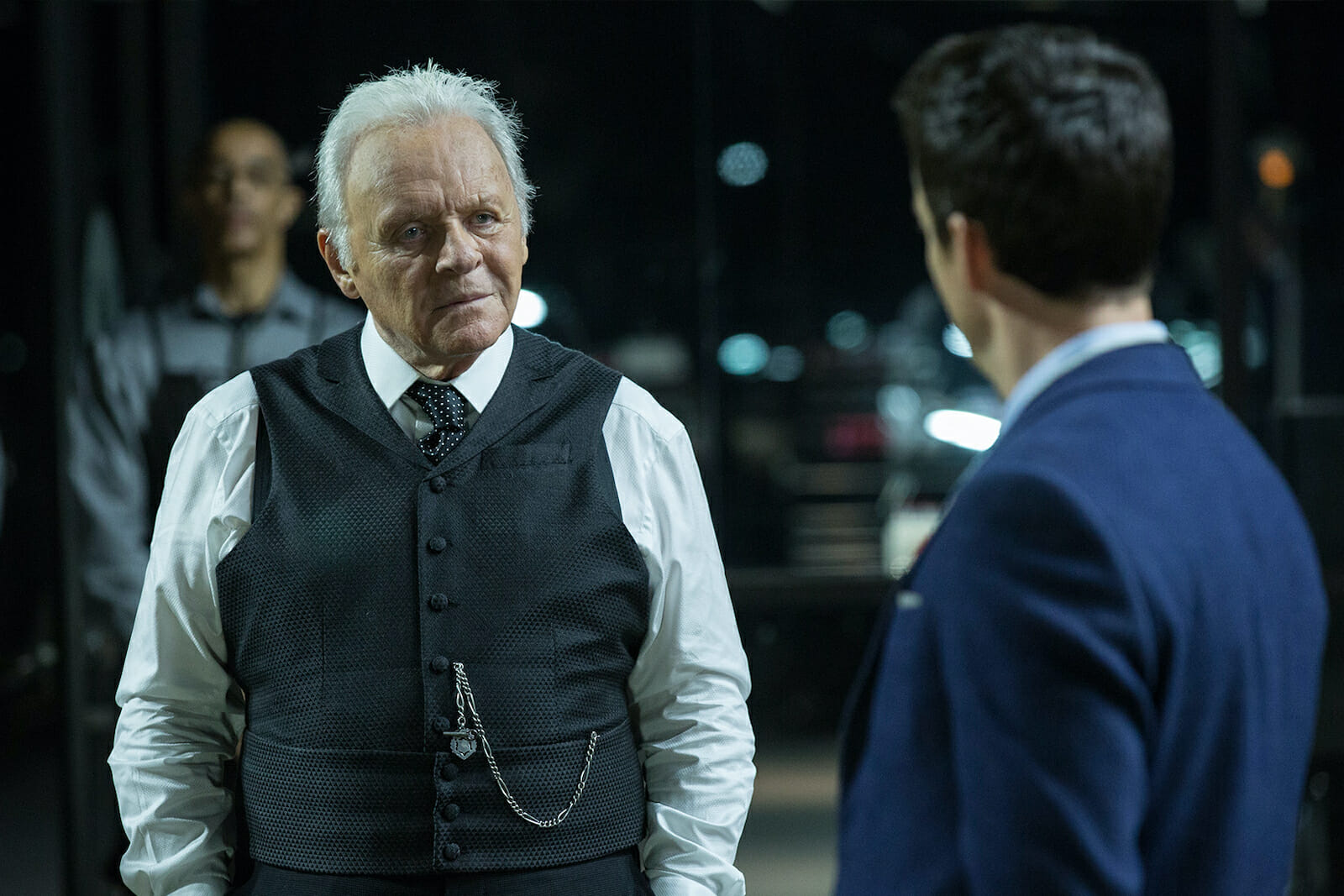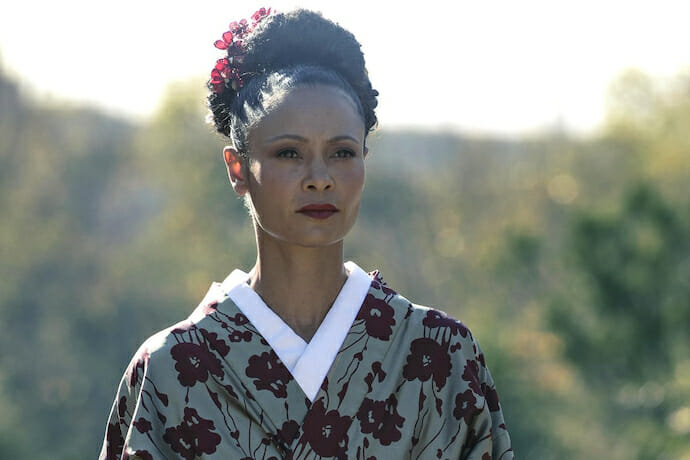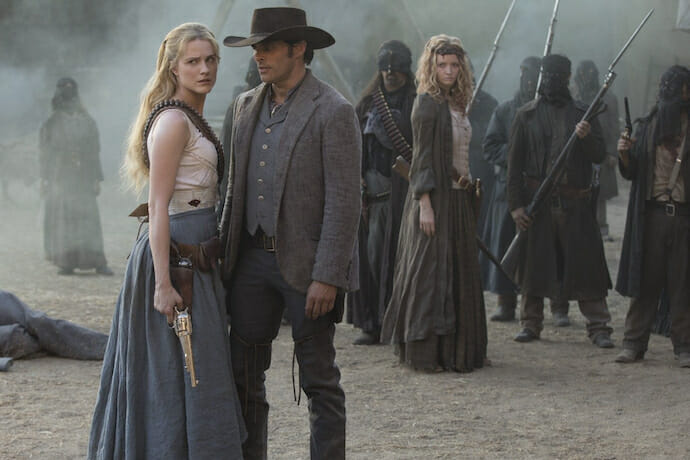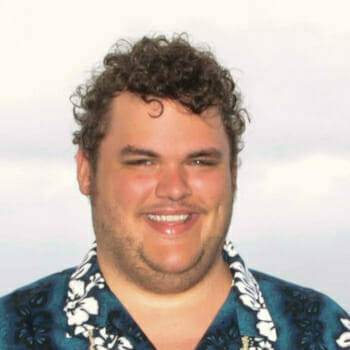
The Fleeting Nature of ‘Westworld’
Last year, at Game of Thrones’ final season viewing parties (what initially began as a celebration instead turned into group therapy sessions by the end of the season), my friends and I saw teasers for season 3 of another popular HBO high-brow genre TV show, the acclaimed sci-fi western Westworld. We marveled at how this new season promised to take the adventure from inside the titular western-themed amusement park staffed by robotic “hosts” into the outside world of the future. Still, about a year away from its premiere and even with the focus being on the conclusion of its flagship series, HBO wanted you to know that a new season of Westworld was imminent and worth your attention.
Well, that season just wrapped up a few weeks ago. And it’s possible I won’t really think about Westworld again beyond a tertiary “oh, yeah, that show I like” until we start to see similar teasers for the fourth season. And that’s what has led me to a new line of thinking about this show: despite the impressive cast, thoughtful writing with philosophical undercurrents, jaw-dropping action and effects, and the engaging storyline, Westworld doesn’t linger in either the minds of its fans or the cultural conversation the way that other breakout shows have in the past. If HBO is pitching Westworld as the rightful heir to fill the void left after Game of Thrones, that may turn out to be a flawed strategy. Shows like Game of Thrones thrived during the long gap between seasons, fueled by speculation about where things were ultimately going. (That show concluded that the answer to that question was, in fact, nowhere.) In contrast, Westworld doesn’t feel like a would-be TV obsession as much as it feels like the Olympics: it airs for a couple of weeks on TV every 2 years, and you get really into it. After that, you just sort of forget about it and move on. The only thing that snaps you back to its attention is the reminder that eventually, more will follow.
Produced by married couple Jonathan Nolan (brother of Christopher) and Lisa Joy, Westworld is based on the 1973 film written and directed by Michael Crichton, best known for writing such novels as The Andromeda Strain and Jurassic Park, as well as creating the popular TV show ER. Nolan and Joy manage to flesh out the world of the very-much-dated original movie to explore much more complex and thought-provoking material. Westworld primarily deals with an ensemble of characters, some robot, some human, and their interactions inside the titular park.

Lead character Dolores (Evan Rachel Wood) is a host originally programmed to be a sweet country girl character who gradually wakes up to the world around her, and the role she plays in it. By season 2, Dolores is the leader of an armed insurrection of hosts at the park, massacring their human clients. By season 3, she’s escaped the park and now plots humanity’s destruction (or maybe not?) as someone who can blend into the human world.
Maeve (Thandie Newton), another host who was originally the madam of an old-west brothel, is haunted by images of a daughter she seemingly had in another life. Like Dolores, she too begins to wake up, and in so doing gains both human allies and the ability to control other hosts. Bernard (Jeffrey Wright) is one of the people in charge of the park, though his internal journey of discovery leads to the realization that he may not be human, either.
William (Ed Harris at times, Jimmi Simpson at others) is a human who is addicted to going to the park and living out his fantasies, and is forced to confront some dark realizations about why he is the way he is. And I can’t forget characters like ruthless corporate leader Charlotte Hale (Tessa Thompson); Dolores’ love interest, the cowboy host Teddy (James Marsden); Lee Sizemore (Simon Quarterman), the obsessive writer behind the stories within the park; and many others. And while he’s mostly entirely contained to the first season, I’d be remiss not to mention the creator of the park Robert Ford, played by the incomparable Sir Anthony Hopkins. Hopkins’ presence as an actor and the sense of gravity he brought to the role helped elevate that first season of Westworld, and helped turn the show from mild curiosity into water-cooler conversation in late 2016.
And that’s the thing: both of the subsequent seasons have struggled to recapture what made that first season so distinctive. After a nearly 18-month gap, season 2 promised us a look at other worlds within the theme park, so Maeve took a detour in which she and others spent time in Shōgunworld, a samurai-themed park where the show got to demonstrate Asian-influenced action, swordplay, and martial arts. However, the best season 2 got was in the episode entitled “Kiksuysa,” in which a Native American host named Akecheta (Zahn McClarnon) walks through what he remembers of his life. It’s a very moving episode, and one that explored the perspective of a host really thoughtfully. But while season 1 ended on an incredible cliffhanger, season 2 ended with a lot of exposition, the opening of some kind of gate to some kind of robot-Heaven (I think?), and the promise that next season would be even bigger by going into the world outside the park.
When we did finally get to season 3 nearly two years after that, a lot of the action revolves around Caleb (Aaron Paul), a recent addition whose introduction felt clunky. The character never seemed to assume the weight and purpose that other characters projected onto him. Specifically, in regards to the way the character of William was portrayed in the first season, the show really built him up so that when it was unveiled who he really was (or rather, who he would eventually become), it really clicked. In contrast, Caleb was presented to the audience with no flourishes, and even comparable “twists” about his backstory that don’t really add anything to his character. Much of this season revolves around Rehoboam, an artificial intelligence that determines the fate of every person in the world. While the characters debate whether or not such a thing should exist, Dolores and Caleb find a way to send everyone in the world Rehoboam’s personal assessment of them, leading to massive civil unrest. While the third season might be Westworld’s most visually impressive, filled with an incredible futuristic design and impressive cinematography, it might have been its mostly underwhelming narratively. The season finale even features common people protesting and rioting against the police and government, which feels eerily accurate compared to the recent protests nationwide. However, these scenes feel less prescient about our current political and social climate than it does an excuse to have newly-cast NFL-running back Marshawn Lynch shows off his athletic prowess and trademark “beast mode” during the rioting scenes. (Though I must admit, I love the futuristic shirt his character wears that displays the emotion he is feeling at that moment.)

To be clear, Westworld is a great show. But like House of Cards before it, every season has felt like increasingly depreciating results. Some of it feels like each season is merely just checking in on the characters: first they were there, then they were there, now they are here. If there is some grand narrative to the show, it has yet to become obvious. As it stands, each season simply serves as an update, not necessarily a continuation. Part of it also feels like the characters are in circular narratives, a rut they can’t seem to get out of. Maeve’s motivation in the first season was to reunite with her daughter. Now, two seasons later and despite her daughter being in the robot-equivalent of Heaven (I think?), Maeve’s determination to be with her daughter still surprisingly serves as what drives her. Maeve is one of the shows breakout characters, and Thandie Newton plays her with charm, wit, a puckish smirk and an enunciation of the word “darling” that will stick with you. All of this and more has already earned her an Emmy award for the role. But Maeve deserves so much more, needing agency and motivation beyond this one singular focus. I’d also be hard-pressed to tell you what Bernard’s ultimate goal is. Is it stopping Dolores? Ensuring the safety of his fellow hosts? Being with the widow of the man he’s modeled after? (Said widow is played by the always-wonderful Gina Torres, who, if she wanted to be in a sci-fi western TV show, should’ve stuck to Firefly.) And then, to introduce a new character like Caleb, on top of the lack of clarity about the direction of the other characters, feels like just another unneeded ingredient that distracts from the overall purpose of the show.
But despite its frontrunner status as HBO’s prestige genre show in a post-Game of Thrones landscape, Westworld does not inspire the fandom, devotion or speculation that many other popular series, including and especially Game of Thrones, did. One friend noted that Westworld has noticeably fewer memes created from it than other comparably-popular shows. Additionally, while Game of Thrones had everything from the original books by George R.R. Martin to action figures to video games to comic books to clothing and apparel that fans could use to cope and distract from the long gaps between seasons, Westworld has little of that in comparison. Even the closest thing the show has to a catchphrase, “these violent delights have violent ends,” is actually a quote from Shakespeare’s Romeo & Juliet, and doesn’t seemed destined for pop-culture immortality alongside the likes of “beam me up, Scotty,” “winter is coming,” or even “nanu nanu.”
It now appears that 2022 is the earliest we could possibly get another season of Westworld, with a good chance it’ll be later than that due to coronavirus-related delays. That’s a gap that feels more reminiscent of cinematic sequels, not television storytelling. Fans can wait a few years to see the latest adventures of Batman or the Avengers or James Bond on the big screen, but on television? Its serialized nature makes it cost-prohibitive when it comes to big gaps between entries. The risk becomes that the audience will eventually become alienated, making them lose interest or move on entirely.
But there’s also a question about where this is all going. Part of the reason Game of Thrones dominated the cultural conversation for so long was because its very name implied that the show was building up to something, heading towards some kind of conclusion where someone would definitively win. (Let’s not even discuss who actually ended up winning the throne.) Even less geeky, less genre-oriented shows have similar through-lines that kept them at the forefront of the zeitgeist: What will happen to Walt and Jesse? Will Don Draper ever get redeemed? Will Tony Soprano get whacked? Will the spies on either The Americans and/or Homeland be revealed and/or caught?
In contrast, what is the question that will keep people invested in Westworld, that makes them keep coming back? What is it building up to? Is it the question of what happens to the hosts, will they replace humanity and take over the world? Is it the question of what happens to the park? The attendees? The technology? The only major mostly-unexplored curiosity that have been introduced in every season subsequent to the first are the other parks: in addition to Shōgunworld, season 2 introduced a park called The Raj, based on the British rule of India, while season 3 introduced the World War II-themed Warworld. Yet, these feel more like glorified cameos, implying the existence of a bigger universe for our characters to interact with, but mostly failing to explore it.
Because of that, the show feels somewhat directionless, as if each individual season is focused on a particular theme. The first season is about waking up to the world around you, the second season is about revolution, the third season is about control and breaking free of it. And while those themes are certainly worth exploring within the context of a larger narrative, they instead seem to now be steering the flow of the story, essentially hijacking it.
I will continue to watch Westworld whenever season 4 comes out. Despite my criticisms, it is a great show, and one I like to watch. It’s entertaining, engaging, and different, standing uniquely even amongst the landscape of “peak TV.” But I am hardly waiting on bated breath for it. It’s not like I’m not looking forward to another season, it just feels too distant and disjointed to engage with right now. Moreover, there is next to nothing to keep me invested in the show during this long downtime between seasons. So until we get more episodes, Westworld, while still worth watching, proves to be as fleeting and temporary as the experiences in its titular park.

